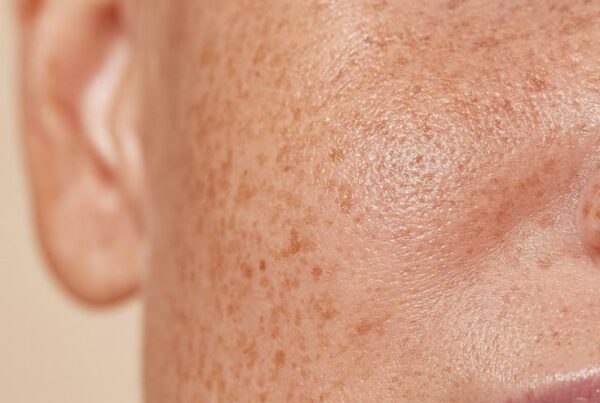Every year, many people spend thousands of dollars on liposuction, laser surgeries, and other procedures, just to get rid of cellulite. However, most of these procedures do not get to the root cause of cellulite and improve the condition, and some leave you in pain.
Luckily, collagen has been making waves lately as a natural, painless alternative to help combat the appearance of cellulite and improve your overall skin health naturally.
You’re probably wondering, “How does collagen help with cellulite?” That’s what this article will show you in detail.
By the way, you may read about the benefits of collagen for the skin.
That said, let’s get to the basis of this vexing problem that has been a bone in the throat of most women.
What is Cellulite?
From a clinical perspective, it is a fat globule that forms under the skin, pushing the connective tissues out of shape and causing a dimpled lumpy look. This issue usually appears on the hips, thighs, buttocks, and abdomen, and it can happen to anyone as they age.
What Causes Cellulite?
As we age, our skin loses its elasticity. At some point, it stops stretching and starts rolling instead, forming cellulite. This condition is more common in women as they get older. And there’s a hormonal and genetic influence on cellulite formation.

Photo by Anete Lusina from Pexels
A study shows that 85 -98% of women suffer from cellulite and this shows that it is more than ordinary.
Being overweight is another factor that contributes to cellulite formation as you tend to have more fat in your body. As the fat or cellulite gathers under the skin, the cord pulls down as the skin is pushed up, creating a wavy pattern in the dermis that indicates cellulite.
However, skinny people also suffer from this condition. Weight loss may also make cellulite less visible, but it won’t go away completely.
So, let’s agree that everyone is at risk of having cellulite, no matter their age, weight, or body type.
How Does Collagen Help with Cellulite?
Collagen is the most abundant protein in the body, and it plays a major role in almost all body parts, including your skin, ligaments, blood vessels, teeth, corneas, and beyond. You can liken collagen to the glue that holds your body together.
The body makes collagen from protein. That’s why health experts recommend eating healthy protein-rich foods such as salmon, ham steak, lentils, fresh vegetables, and fruits.
If your diet lacks fresh vegetables and fruits, it may leave the body lacking antioxidants. This often results in oxidative stress, which degrades collagen.
So your body needs a good supply of nutrients to create collagen. Unfortunately, many of us do not meet up to the daily dietary recommendation level.
However, a lot of people have reported plumper skin with reduced wrinkles and other signs of aging after taking collagen supplements.
How does this Abundant Protein Help with Cellulite?
Firstly, collagen works internally. It is not an invasive procedure that requires needles to reach the cellulite. Collagen works from within just where cellulite is, and it helps resolve the issue.
Secondly, collagen addresses the issue of pushing the connective tissue out of shape. This protein strengthens these tissues and hydrates the skin from within.
These two features of collagen make it work perfectly for firmness, plumpness, and better skin elasticity.
A study published in the Journal of Medicinal Food observed the effects of bioactive collagen peptides on 105 healthy weight and overweight women between ages 24 and 50, having moderate cellulite. The participants were taking 2.5 grams of collagen every day for six months.

Photo by Ron Lach
The results showed that those taking a daily dose of collagen experienced a significant reduction in the appearance of cellulite compared to the placebo group.
The study demonstrated that daily consumption of bioactive collagen peptides over a period of six months can cause a great improvement in skin appearance in women suffering from moderate cellulite.
What to Note About Using Collagen for Cellulite
Although eating a healthy, balanced diet can help the body produce a good amount of collagen, taking extra collagen in the form of peptides has been proven to help with cellulite and improve skin elasticity.
However, you need to note that;
- Results won’t happen overnight. So, do not expect some magic after a few hours of taking collagen peptides. Researchers found that it takes about six months of daily intake of collagen peptides to reduce the appearance of cellulite and boost skin firmness.
- The best types of collagen peptides to reduce cellulite are made using collagen type I and III. These collagen types promote collagen synthesis in the dermis of your skin, producing noticeable results.
- Your personal collagen intake depends on the specific health considerations, diet, and type of benefits you hope to achieve. So it is good to talk to your doctor before taking any dietary supplementation.
How Much of Collagen is Effective for Cellulite
While collagen is safe and effective, researchers have confirmed the importance of consuming a reasonable amount. Taking 2.5 – 15 mg of collagen has been proven to offer many benefits, including the reduction of cellulite.
Generally, scientists recommend a daily dose of 2.5 grams of collagen to reduce moderate cellulite in women. This protein supplement also helps reduce the appearance of wrinkles and other signs of aging.
Selecting the Best Collagen Peptides Supplements
Keep in mind that the U.S. Food and Drug Administration (FDA) does not regulate nutritional supplements as they do for medications and foods. So manufacturers only follow their guidelines, but there’s still a wide difference in production methods from company to company.

Photo by Sharon McCutcheon on Unsplash
This is more reason why you should choose only high-quality products from brands that show their third-party testing results. Manufacturers that make superior supplements maintain the quality of their products from batch to batch.
In conclusion, you don’t have to break a bank trying to get rid of the cellulite you see on your body. Instead of those expensive invasive methods, you can easily try natural and safe methods such as collagen supplementation to reduce the appearance of cellulite.
A lot of people have been getting positive results with collagen and regaining their confidence. Do not be left out. You can shop for a quality collagen supplement today.
Who is the author?
 Mike Mirayla has 15 years of experience as an oncology compounding pharmacist.
Mike Mirayla has 15 years of experience as an oncology compounding pharmacist.



![women [longevity live]](https://longevitylive.com/wp-content/uploads/2020/01/photo-of-women-walking-down-the-street-1116984-100x100.jpg)










